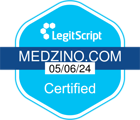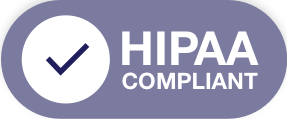Information

Written by Dr Kimberly Langdon, MD
Information last reviewed 06/21/19
About
What is high blood pressure?
High blood pressure (hypertension) is a common chronic disease affecting approximately 86 million adults in the US. Medically, high blood pressure is defined when your blood pressure is 140/90 mmHg or higher. There are many different types of antihypertensive medications that can be taken to reduce your blood pressure.
What does my blood pressure reading mean?
The first number in your blood pressure reading is the systolic pressure. This is the pressure in the arteries when the heart contracts and pumps blood into the arteries. The second number in the reading is the diastolic pressure. This is the pressure in your arteries when the heart muscle rests before the next heartbeat takes place. This is why the pressure is lower. Generally, a blood pressure reading that is 140/90 mmHg of higher is considered high. But there are different ways to classify your blood pressure.
One classification system used in adults is:
- Normal: Lower than 120/80 mmHg
- Prehypertension: 120/80 mmHg to 139/89 mmHg
- Stage 1 Hypertension: 140/90 mmHg to 159/99 mmHg
- Stage 2 Hypertension: Higher than 160/100 mmHg
Alternatively, the 2017 ACC/AHA guidelines divide hypertension into two levels:
- Elevated blood pressure: Systolic pressure between 120 and 129 mmHg and diastolic pressure less than 80 mmHg
- Stage 1 hypertension: Systolic pressure of 130 to 139 mmHg or a diastolic pressure of 80 to 89 mmHg
Causes
High blood pressure can be caused by another disease or by environmental, behavioural and genetic causes.
Primary causes of high blood pressure include:
- Smoking
- Drinking alcohol
- Obesity
- Lack of exercise
- Poor diet
- Genetic susceptibility to high blood pressure
Primary hypertension, accounts for 90-95% of adult cases of high blood pressure.
High blood pressure can also be caused by the following conditions:
- Kidney damage
- Blood vessel damage
- Hormonal problems, such as adrenal or thyroid issues.
When hypertension is caused by other diseases, it is known as secondary hypertension. Secondary hypertension is much less common than primary hypertension. Secondary hypertension accounts for just 2-10% of high blood pressure cases in adults.
Symptoms
Many people have no obvious symptoms of high blood pressure. If an individual does not get their blood pressure checked regularly, symptoms may not occur until high blood pressure has caused damage to an organ.
Some signs and symptoms to look out for are:
- Headaches, especially migraines
- Changes in vision
- Transient ischemic attacks-mini strokes
- Swelling in legs/ankles
- Shortness of breath
- Heart palpitations or racing heartbeat
- Difficulty exercising or becoming out of breath easily.
Diagnosis
High blood pressure is not diagnosed with a one-off blood pressure reading. Your blood pressure can fluctuate naturally, so it must be measured regularly to make an accurate diagnosis. Your doctor may provide you with a home blood pressure monitor for you to use to record your blood pressure yourself.
A diagnosis of high blood pressure is made if your systolic blood pressure is consistently greater than or equal to 130-140 mmHg and your diastolic blood pressure is consistently 90 mmHg or above.
A doctor may also conduct a physical exam and additional blood tests and an ECG to check for an underlying cause of your high blood pressure, which may alter how they approach your treatment. Specifically, they may test for:
- Presence of end-organ disease - eye damage, kidney damage
- Thyroid disorders
- If your high blood pressure is related to cigarette smoking
- Cardiovascular risk factors such as a family history of heart attacks and strokes
Treatment
High blood pressure can be managed by a combination of both lifestyle changes and medications.
Lifestyle changes to reduce high blood pressure include:
- Losing weight to maintain a BMI of 20-25 and a waist circumference of up to 94cm in men and 80cm in women.
- Limiting alcohol intake to no more than 3 units of alcohol per day for men or 1.5 units of alcohol per day for women.
- Reducing salt in your diet to no more than 6g per day.
- Eating more foods rich in potassium, calcium and magnesium.
- Stop smoking.
- Reduce saturated fat and cholesterol in your diet.
- Undertaking aerobic exercise for at least 30 minutes a day on most days.
- Eating only low-fat dairy products.
- Increasing fruit and vegetables in your diet.
- Receiving treatment for high cholesterol if needed.
Medications that can help high blood pressure are:
- Angiotensin-converting enzyme inhibitors (ACE-inhibitors).
- Angiotensin receptor blockers (ARBs).
- Calcium channel blockers (CCBs): This is the preferred medication used for nonblack hypertensive patients.
- Thiazide diuretics: This is the preferred treatment for hypertensive patients who are black. The genetics relating to black ethnicity means that Thiazide diuretics are more often the best treatment.
Many people will require a combination of more than one high blood pressure medication.
If you have certain pre-existing conditions, your doctor may prescribe you different medications than would be normally used. The conditions and their corresponding high blood pressure medications are outlined below:
- Heart Failure: Diuretics, Beta-Blockers, ACE inhibitors, ARBs, Aldosterone antagonists
- Following a Heart Attack: Beta-blockers, ACE inhibitors, ARBs
- Diabetes: ACE inhibitors, ARBs
- Chronic kidney disease: ACE inhibitors, ARBs
Comparison Table
Q&A
Kidney failure is one cause of high blood pressure and hypertension can cause kidney failure.
Heart attacks are usually associated with high blood pressure, high cholesterol, and narrowed arteries that lower oxygen supplies to the heart muscle.
High blood pressure is related to strokes, heart attacks, and heart failure, which are the leading causes of death in the U.S. Therefore, high blood pressure can have a significant effect upon your mortality.
Disclaimer: This is not medical advice. You and your physician will determine if and how you should take any medication prescribed to you following a medical consultation.
-
Rivera SL, Martin J, Landry J. Acute and chronic hypertension: what clinicians need to know for diagnosis and management. Crit Care Nurs Clin North Am. 2019 Mar. 31 (1):97-108.
-
Benjamin EJ, Blaha MJ, Chiuve SE, et al, for the American Heart Association Statistics Committee and Stroke Statistics Subcommittee. Heart disease and stroke statistics-2017 update: a report from the American Heart Association. Circulation. 2017 Mar 7. 135 (10):e146-e603. .
-
Chobanian AV, Bakris GL, Black HR, et al. Seventh report of the Joint National Committee on Prevention, Detection, Evaluation, and Treatment of High Blood Pressure. Hypertension. 2003 Dec. 42(6):1206-52.
-
Katakam R, Brukamp K, Townsend RR. What is the proper workup of a patient with hypertension?. Cleve Clin J Med. 2008 Sep. 75(9):663-72.
-
Institute for Clinical Systems Improvement (ICSI). Hypertension diagnosis and treatment. Bloomington, Minn: Institute for Clinical Systems Improvement (ICSI); 2010.
-
Whelton PK, Appel LJ, Sacco RL, et al. Sodium, blood pressure, and cardiovascular disease: further evidence supporting the American Heart Association sodium reduction recommendations. Circulation. 2012 Dec 11. 126 (24):2880-9.
-
[Guideline] Williams B, Mancia G, Spiering W, et al, for the ESC Scientific Document Group. 2018 ESC/ESH guidelines for the management of arterial hypertension. Eur Heart J. 2018 Sep 1. 39 (33):3021-104.
-
[Guideline] Whelton PK, Carey RM, Aronow WS, et al. 2017 ACC/AHA/AAPA/ABC/ACPM/AGS/APhA/ASH/ASPC/NMA/PCNA Guideline for the Prevention, Detection, Evaluation, and Management of High Blood Pressure in Adults: A Report of the American College of Cardiology/American Heart Association Task Force on Clinical Practice Guidelines. Hypertension. 2018 Jun. 71(6):e13-e115.
-
Jeffrey S. New ACC/AHA hypertension guidelines make 130 the new 140. Medscape Medical News. Available at https://www.medscape.com/viewarticle/888560. November 13, 2017; Accessed: November 18, 2017.













Quick and discreet
I ordered Azithromycin tablets for chlamydia treatment, received it next day in a brown discreet pack, and cheaper than all other pharmacies, can't ask for more
Jordan McCann